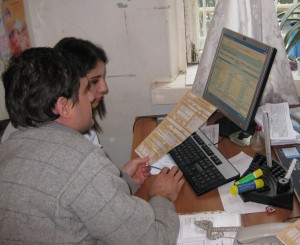In Eastern Europe and Central Asia, HIV prevalence continues to increase, despite significant progress in developing systems and institutions to address HIV and AIDS. Between 2001 and 2012, the estimated number of people living with HIV in the region increased from 860,000 to 1.3 million. HIV-related deaths in the region also increased, from an estimated 36,000 in 2001 to 91,000 in 2012 (UNAIDS Global Report, 2013).
 While HIV-prevalence among the general population is relatively low in Armenia, Azerbaijan, and Georgia, the epidemic in the Caucasus is highly concentrated in key populations and the numbers of people living with HIV (PLHIV) are increasing annually. Adult HIV prevalence in Georgia, for example, though still low, has slowly increased over the past decade to more than 0.1 percent in 2011. Between 2001 and 2012, the estimated number of people living with HIV in Georgia more than quadrupled from 1,500 to 6,600. These populations, also known as most-at-risk populations (MARPS), consist of injecting drug users (IDUs), men who have sex with men (MSM), prisoners, and commercial sex workers. Stigmatization of IDUs and MSM makes it difficult for them to access health services. Government programs do not target HIV/AIDS services to these populations or reach out to find HIV-infected persons.
While HIV-prevalence among the general population is relatively low in Armenia, Azerbaijan, and Georgia, the epidemic in the Caucasus is highly concentrated in key populations and the numbers of people living with HIV (PLHIV) are increasing annually. Adult HIV prevalence in Georgia, for example, though still low, has slowly increased over the past decade to more than 0.1 percent in 2011. Between 2001 and 2012, the estimated number of people living with HIV in Georgia more than quadrupled from 1,500 to 6,600. These populations, also known as most-at-risk populations (MARPS), consist of injecting drug users (IDUs), men who have sex with men (MSM), prisoners, and commercial sex workers. Stigmatization of IDUs and MSM makes it difficult for them to access health services. Government programs do not target HIV/AIDS services to these populations or reach out to find HIV-infected persons.
Non-governmental organizations (NGOs) play an important role in addressing the HIV epidemic in the region. They attempt to fill gaps in health care systems by providing comprehensive prevention, care, and treatment support services to IDU and MSM populations, and advocating for supportive policies on behalf of these populations. As donors reduce funding for all health programming in the Caucasus, there is a critical need to build the capacity of local NGOs serving IDU and MSM populations in Eastern Europe and Eurasia. These NGOs provide essential HIV prevention, treatment, and support services that are not currently available through government programs, and the sustainability of these NGOs is threatened.
HFG is working to build the capacity of local NGOs serving MARPS in Armenia, Azerbaijan, and Georgia by providing financial and focused management support to a regional technical assistance provider, support organization, and resource center for HIV and AIDS NGOs. This support will allow the regional organization to provide the necessary technical assistance, training, and networking activities needed by smaller, local NGOs in three South Caucasus countries. Ultimately, the regional NGO will provide technical support to between 10 and 15 local NGOs throughout the region.
HFG will provide technical assistance, tools, and mentoring, to the regional organization to address the challenges to sustainability faced by local NGOs. This assistance aims to:
- Improve financial management practices;
- Increase strategic resource mobilization capacity;
- Strengthen governance and management structures;
- Develop improved capacity for advocacy and constituency-building; and
- Support national and regional networking and referral systems.
Through this locally-led model, HFG is helping to strengthen local HIV and AIDS NGOs serving MSM and IDU populations in Armenia, Azerbaijan, and Georgia, supporting their ability to provide essential, sustainable services for MSM and IDU. The goal is that local NGOs working with MARPS will be well-equipped to continue to provide services and advocate for the needs of MARPS beyond projected donor assistance to such programming.
Publications



